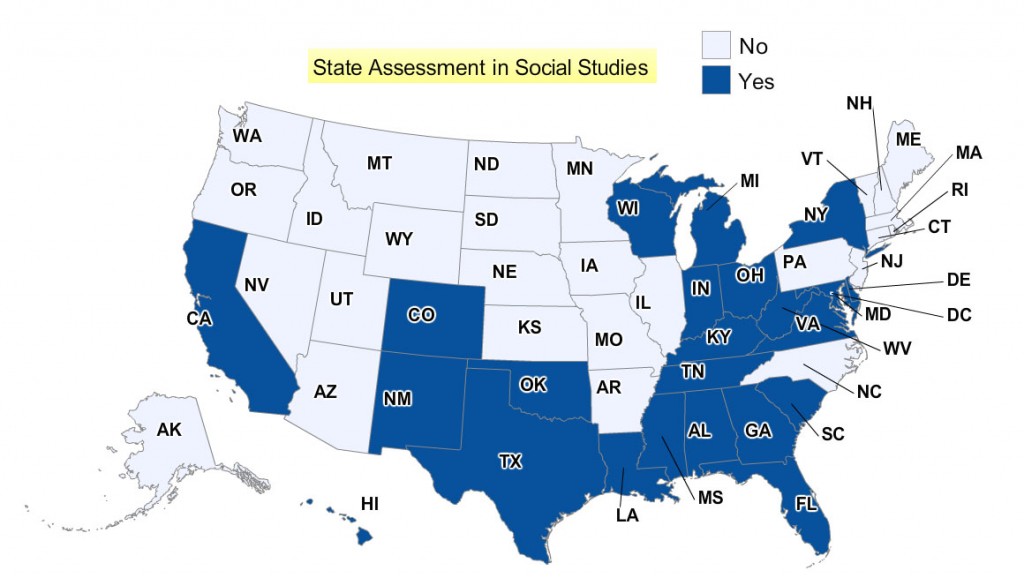High School Civics Requirements and Assessments Vary Across the U.S.
Last month, we released a brand-new interactive map of civic education policy in the United States, which provides a state-by-state look at key policies, such as whether states assess social studies, what civics courses they require, and whether states have service-learning standards. We scanned all 50 states plus Washington, D.C. in early 2014, updating CIRCLE’s 2012 findings on civic education policy with data that are current as of March of this year.
The map illustrates what our previous research has shown: substantial state-to-state variation in the requirements and assessments related to civic education.
« States require, on average, three credits of high school social studies for graduation, but the range goes from zero required credits in Colorado[1] to five in Idaho.
« Almost half of all states have required assessments in social studies, either through an end of course exam, other standardized test, or both.[2] The data also show the rapidly changing landscape of civic education: since 2012, Colorado, Florida, and Maryland have added statewide assessments, while Kansas and Missouri have dropped them.
« In the last two years, more states have also moved to require civics or American government as a condition of graduation from high school. There are now 45 states with such policies (five more than in 2012), with only Delaware, Rhode Island, Oregon, Montana, and Alaska lacking those requirements.
« However, only eight of the states with required civics or American government courses also have a required statewide test or assessment.
There is a sharp contrast with other social studies subjects like U.S History, which is required in 45 states but tested in 17 of them — more than double the number of states that test civics. Statewide testing requirements are likewise more common for World History and Geography. This may speak to a greater priority given to those subjects, and to the challenges of creating standardized assessments that accurately measure civics knowledge and skills like collaboration and deliberation.
Since 2012, California, Colorado, and Maryland have adopted service-learning in their content standards; Iowa, Illinois, and Kentucky have eliminated it. Currently almost 2/3 of the country—32 states—include service learning, but less than half of those have standards for service-learning that include reflection, youth voice, links to curriculum, meaningful service, etc. This is a critical point, as research has suggested that only when student service experiences involve aspects like thinking about the root causes of problems do they also serve as valuable educational opportunities.
As states continue to adjust their standards, assessments, and requirements over the coming years, further analysis will be needed to fully understand the impact of these varied civic education policies.
Explore the full interactive map.
[1] Colorado has moved towards a competency based system that no-longer measures “seat time” but sets benchmarks for achievement in social studies.
[2] Note that we did not review assessments or evaluations geared towards teacher performance, only those aimed at students.






